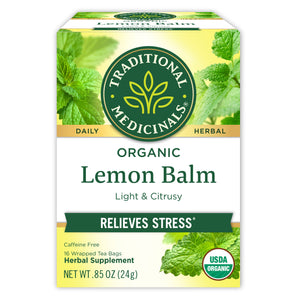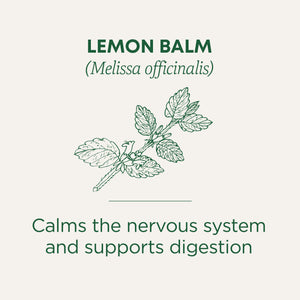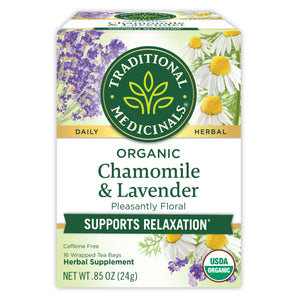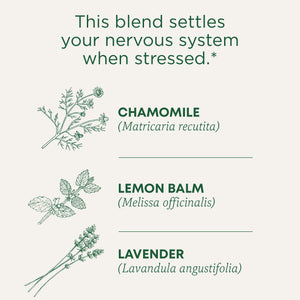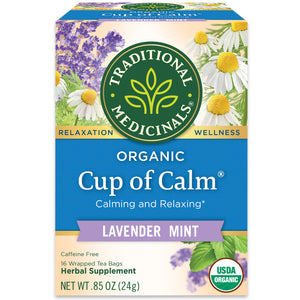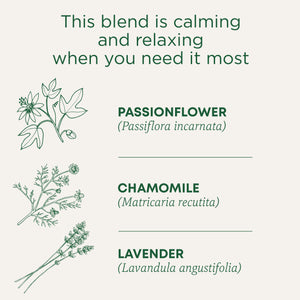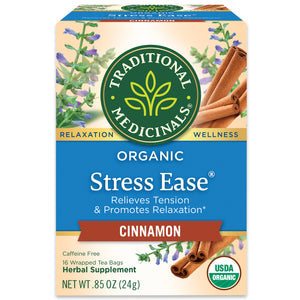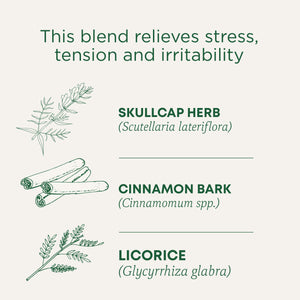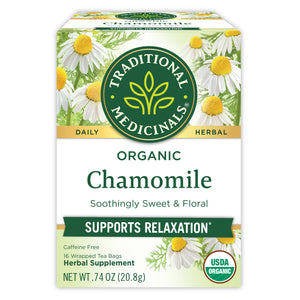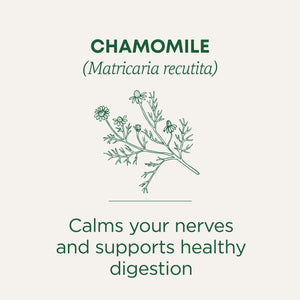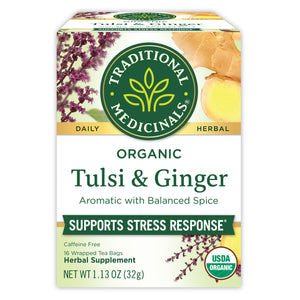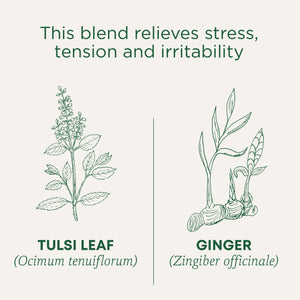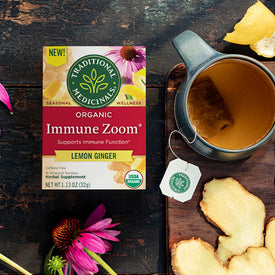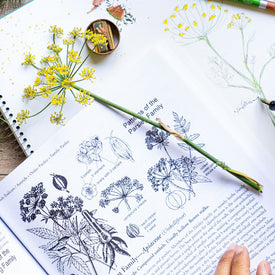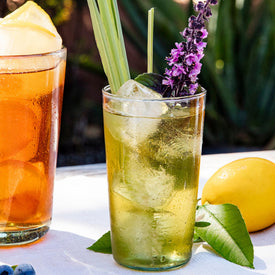With a ghoulish name like skullcap, an herb could easily get a bad reputation. Fortunately, this plant’s popularity as an herbal medicine has grown over the last few centuries. In a time when an increasing number of health conditions are being associated with tension and stress, skullcap’s nerve-calming powers couldn’t be timelier. That’s why you can find it in our Stress Ease® Cinnamon tea, where we blend it with cinnamon bark and licorice root for a fast-acting, unwinding and grounding experience.
Skullcap hails from the mint family, Lamiaceae, which is easy to identify by the characteristic square stems and the jagged edges of its leaves. This perennial thrives in moist, shady riparian habitats, from forests and thickets to meadows and marshes and is a native plant of North America. Scutellaria lateriflora, the native species we use, grows up to three feet tall and is adorned with dainty blue flowers formed by two tongue-like petals. Together, the petals were said to resemble the helmets of medieval European soldiers, hence its common name: skullcap. Farmers and collectors harvest the plants while they are flowering—the peak of their herbal power—then cut and dry the leaves and stems to use as herbal medicine.
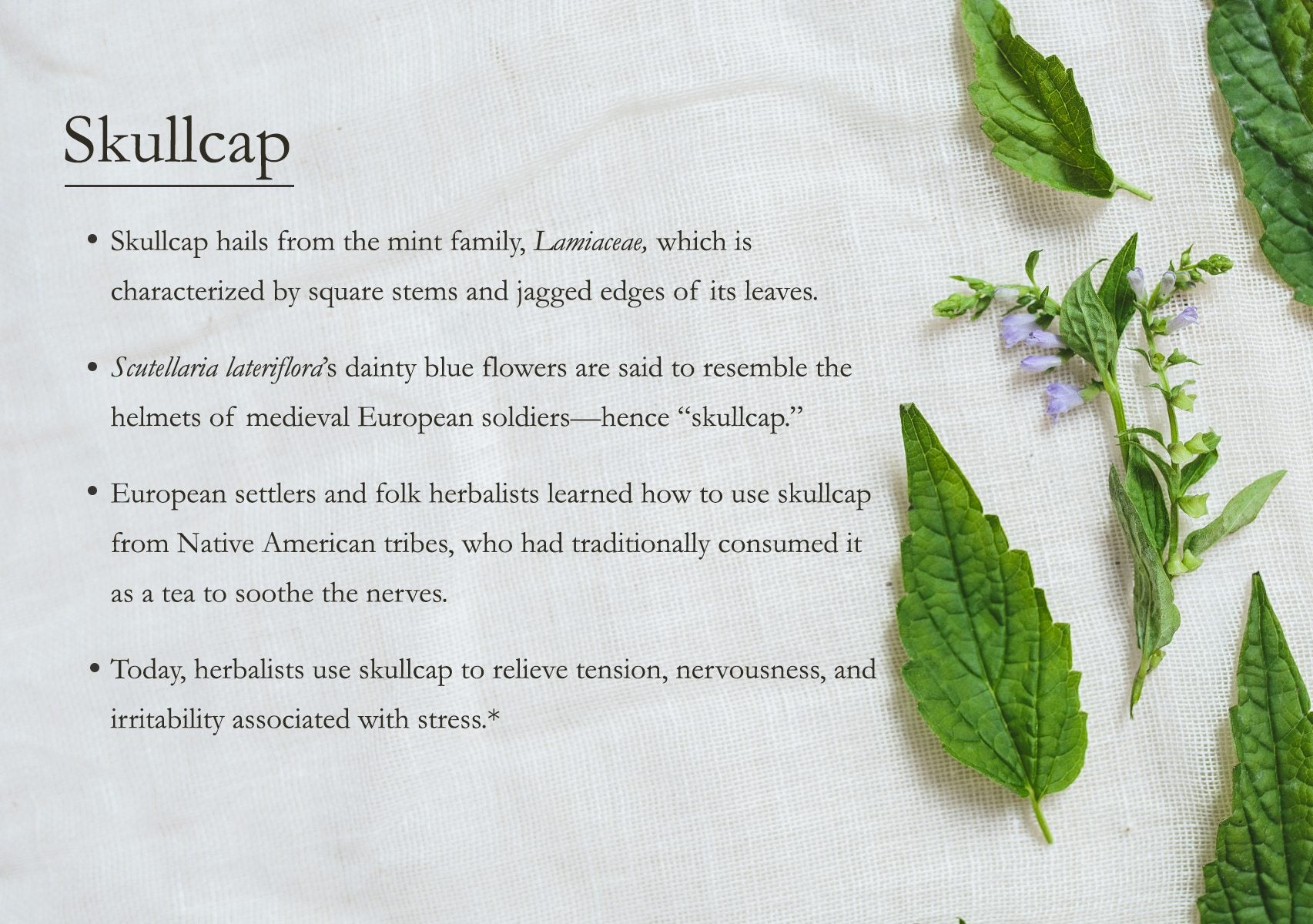
While skullcap grew wild throughout Europe prior to the colonization of the Americas, the North American species was the first to make a significant mark on herbal medicine. European settlers and folk herbalists learned how to use skullcap from Native American tribes, who had traditionally consumed it as a tea to soothe the nerves. Herbal physicians then brought it back to Great Britain in the 19th century, introducing more people to its relaxing benefits. Today, herbalists use it for many reasons, but primarily to relieve tension, nervousness, and irritability associated with stress.*
Over the last 15 years, trade-related books and journals have charted the steady growth of Scutellaria lateriflora in herbal wellness products, proving that skullcap’s use as a stress tonic is more relevant now than ever. In fact, our in-house herbalists swear by it! While other relaxing herbs like valerian and chamomile tend to make people sleepy, skullcap has the uncanny ability to soothe the nerves without slowing you down. Whether you are hoping to alleviate some of your stress before walking into an important meeting, or looking to take the edge off a bad day, we encourage you to tap into its ancient herbal wisdom to usher some quiet into the daily hustle and bustle of our modern age.

